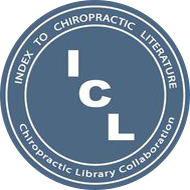Quick Access
Get started with ICL search tools and learn how to find what you need
View All Help →Learn more about our mission and the libraries we serve
Learn More →Explore our collection of chiropractic and related health journals
All Journals →Tools and guides for researchers and students
All Resources →